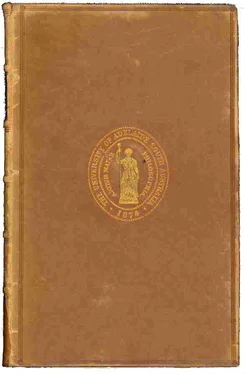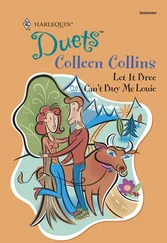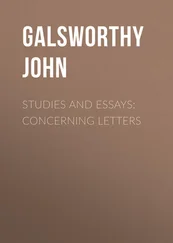Galsworthy, 1867-1933 - To Let
Здесь есть возможность читать онлайн «Galsworthy, 1867-1933 - To Let» весь текст электронной книги совершенно бесплатно (целиком полную версию без сокращений). В некоторых случаях можно слушать аудио, скачать через торрент в формате fb2 и присутствует краткое содержание. Жанр: Старинная литература, на английском языке. Описание произведения, (предисловие) а так же отзывы посетителей доступны на портале библиотеки ЛибКат.
- Название:To Let
- Автор:
- Жанр:
- Год:неизвестен
- ISBN:нет данных
- Рейтинг книги:5 / 5. Голосов: 1
-
Избранное:Добавить в избранное
- Отзывы:
-
Ваша оценка:
- 100
- 1
- 2
- 3
- 4
- 5
To Let: краткое содержание, описание и аннотация
Предлагаем к чтению аннотацию, описание, краткое содержание или предисловие (зависит от того, что написал сам автор книги «To Let»). Если вы не нашли необходимую информацию о книге — напишите в комментариях, мы постараемся отыскать её.
To Let — читать онлайн бесплатно полную книгу (весь текст) целиком
Ниже представлен текст книги, разбитый по страницам. Система сохранения места последней прочитанной страницы, позволяет с удобством читать онлайн бесплатно книгу «To Let», без необходимости каждый раз заново искать на чём Вы остановились. Поставьте закладку, и сможете в любой момент перейти на страницу, на которой закончили чтение.
Интервал:
Закладка:
To Let by John Galsworthy
eBooks@Adelaide
2010
This web edition published by eBooks@Adelaide .
Rendered into HTML by Steve Thomas .
Last updated Sat Aug 28 15:09:01 2010.
This work is licensed under a Creative Commons Licence
(available at http://creativecommons.org/licenses/by-nc-sa/2.5/au/). You are free: to copy, distribute, display, and perform the work, and to make derivative works under the following conditions: you must attribute the work in the manner specified by the licensor; you may not use this work for commercial purposes; if you alter, transform, or build upon this work, you may distribute the resulting work only under a license identical to this one. For any reuse or distribution, you must make clear to others the license terms of this work. Any of these conditions can be waived if you get permission from the licensor. Your fair use and other rights are in no way affected by the above.
eBooks@Adelaide
The University of Adelaide Library
University of Adelaide
South Australia 5005
Table of ContentsAuthor’s Note Part I
Encounter
Fine Fleur Forsyte
At Robin Hill
The Mausoleum
The Native Heath
Jon
Fleur
Idyll on Grass
Goya
Trio
Duet
Caprice Part II
Mother and Son
Fathers and Daughters
Meetings
In Green Street
Purely Forsyte Affairs
Soames’ Private Life
June Takes a Hand
The Bit Between the Teeth
Fat in the Fire
Decision
Timothy Prophesies Part III
Old Jolyon Walks
Confession
Irene!
Soames Cogitates
The Fixed Idea
Desperate
Embassy
The Dark Tune
Under the Oak-Tree
Fleur’s Wedding
The Last of the Forsytes
Last updated on Wed Jan 12 09:33:24 2011 for eBooks@Adelaide.
To Let, by John Galsworthy
Author’s Note
With this volume, The Forsyte Saga — that series comprising “The Man of Property,” “Indian Summer of a Forsyte” (from the volume “Five Tales”), “In Chancery,” and “Awakening”— comes to an end.
J. G.
Last updated on Wed Jan 12 09:33:24 2011 for eBooks@Adelaide.
To Let, by John Galsworthy
Part I I Encounter
Soames Forsyte emerged from the Knightsbridge Hotel, where he was staying, in the afternoon of the 12th of May, 1920, with the intention of visiting a collection of pictures in a Gallery off Cork Street, and looking into the Future. He walked. Since the War he never took a cab if he could help it. Their drivers were, in his view, an uncivil lot, though, now that the War was over and supply beginning to exceed demand again, getting more civil in accordance with the custom of human nature. Still, he had not forgiven them, deeply identifying them with gloomy memories and, now dimly, like all members of their class, with revolution. The considerable anxiety he had passed through during the War, and the more considerable anxiety he had since undergone in the Peace, had produced psychological consequences in a tenacious nature. He had, mentally, so frequently experienced ruin, that he had ceased to believe in its material probability. Paying away four thousand a year in income and super-tax, one could not very well be worse off! A fortune of a quarter of a million, encumbered only by a wife and one daughter, and very diversely invested, afforded substantial guarantee even against that “wildcat notion”— a levy on capital. And as to confiscation of war profits, he was entirely in favor of it, for he had none, and “serve the beggars right!” The price of pictures, moreover, had, if anything, gone up, and he had done better with his collection since the War began than ever before. Air-raids, also, had acted beneficially on a spirit congenitally cautious, and hardened a character already dogged. To be in danger of being entirely dispersed inclined one to be less apprehensive of the more partial dispersions involved in levies and taxation, while the habit of condemning the impudence of the Germans had led naturally to condemning that of Labor, if not openly at least in the sanctuary of his soul.
He walked. There was, moreover, time to spare, for Fleur was to meet him at the Gallery at four o’clock, and it was as yet but half past two. It was good for him to walk — his liver was a little constricted and his nerves rather on edge. His wife was always out when she was in Town, and his daughter WOULD flibberty-gibbet all over the place like most young women since the War. Still, he must be thankful that she had been too young to do anything in that War itself. Not, of course, that he had not supported the War from its inception, with all his soul, but between that and supporting it with the bodies of his wife and daughter, there had been a gap fixed by something old-fashioned within him which abhorred emotional extravagance. He had, for instance, strongly objected to Annette, so attractive, and in 1914 only thirty-five, going to her native France, her “chere patrie” as, under the stimulus of war, she had begun to call it, to nurse her “braves poilus,” forsooth! Ruining her health and her looks! As if she were really a nurse! He had put a stopper on it. Let her do needlework for them at home, or knit! She had not gone, therefore, and had never been quite the same woman since. A bad tendency of hers to mock at him, not openly, but in continual little ways, had grown. As for Fleur, the War had resolved the vexed problem whether or not she should go to school. She was better away from her mother in her war mood, from the chance of air-raids, and the impetus to do extravagant things; so he had placed her in a seminary as far West as had seemed to him compatible with excellence, and had missed her horribly. Fleur! He had never regretted the somewhat outlandish name by which at her birth he had decided so suddenly to call her — marked concession though it had been to the French. Fleur! A pretty name — a pretty child! But restless — too restless; and wilful! Knowing her power too over her father! Soames often reflected on the mistake it was to dote on his daughter. To get old and dote! Sixty-five! He was getting on; but he didn’t feel it, for, fortunately perhaps, considering Annette’s youth and good looks, his second marriage had turned out a cool affair. He had known but one real passion in his life — for that first wife of his — Irene. Yes, and that fellow, his Cousin Jolyon, who had gone off with her, was looking very shaky, they said. No wonder, at seventy-two, after twenty years of a third marriage!
Soames paused a moment in his march to lean over the railings of the Row. A suitable spot for reminiscence, half-way between that house in Park Lane which had seen his birth and his parents’ deaths, and the little house in Montpellier Square where thirty-five years ago he had enjoyed his first edition of matrimony. Now, after twenty years of his second edition, that old tragedy seemed to him like a previous existence — which had ended when Fleur was born in place of the son he had hoped for. For many years he had ceased regretting, even vaguely, the son who had not been born; Fleur filled the bill in his heart. After all, she bore his name; and he was not looking forward at all to the time when she would change it. Indeed, if he ever thought of such a calamity, it was seasoned by the vague feeling that he could make her rich enough to purchase perhaps and extinguish the name of the fellow who married her — why not, since, as it seemed, women were equal to men nowadays? And Soames, secretly convinced that they were not, passed his curved hand over his face vigorously, till it reached the comfort of his chin. Thanks to abstemious habits, he had not grown fat and flabby; his nose was pale and thin, his grey moustache close-clipped, his eyesight unimpaired. A slight stoop closened and corrected the expansion given to his face by the heightening of his forehead in the recession of his grey hair. Little change had Time wrought in the “warmest” of the young Forsytes, as the last of the old Forsytes — Timothy — now in his hundred and first year, would have phrased it.
Читать дальшеИнтервал:
Закладка:
Похожие книги на «To Let»
Представляем Вашему вниманию похожие книги на «To Let» списком для выбора. Мы отобрали схожую по названию и смыслу литературу в надежде предоставить читателям больше вариантов отыскать новые, интересные, ещё непрочитанные произведения.
Обсуждение, отзывы о книге «To Let» и просто собственные мнения читателей. Оставьте ваши комментарии, напишите, что Вы думаете о произведении, его смысле или главных героях. Укажите что конкретно понравилось, а что нет, и почему Вы так считаете.












